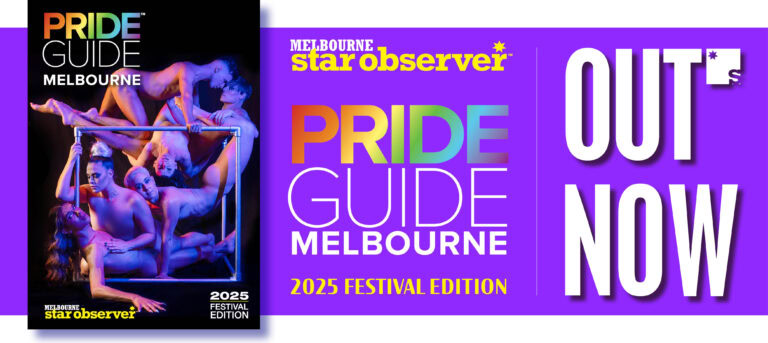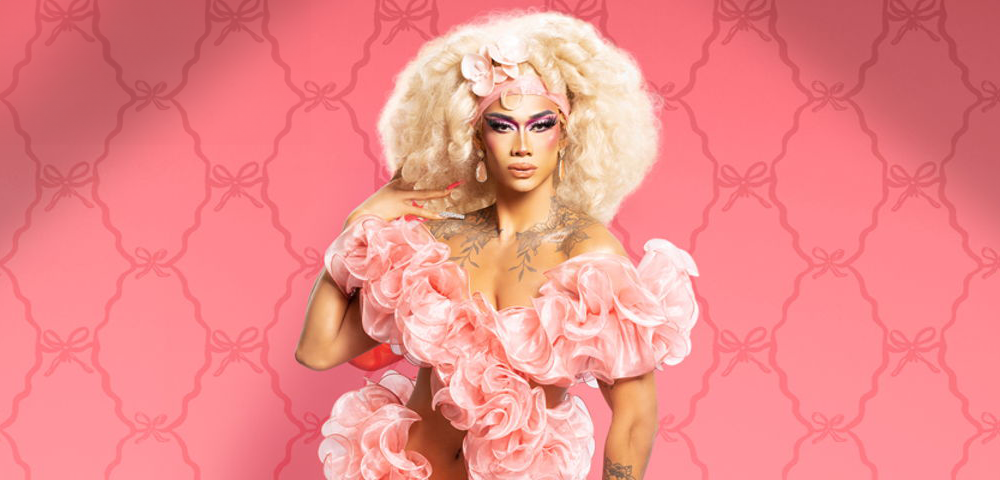
There’s something about Harry
The publication of Harry Potter And The Order Of The Phoenix (Scholastic) this past week marks yet another media triumph for author J.K. Rowling and her boy wizard. Everybody, it seems, loves Harry -“ except for a growing number of evangelical Christian groups. As the series’ success has grown over the past five years, so has the fury of these evangelicals, who think Potter’s popularity poses a decisive threat to children. The Harry Potter books, they argue, glorify sorcery, celebrate the occult, and encourage witchcraft -“ all of which turns impressionable children away from true salvation through Jesus Christ. Baptist.org, the homepage for all Baptists, even ran a two-part article titled Harry Potter And The Sorcerer’s Stone: Why It Is Truly Satanic.
That may sound ridiculous to most, but for the first time in its public-moralising career, the Christian Right just might be -“ at least partly -“ right. The Harry Potter books are a threat to normally accepted ideas about the social welfare and good mental health of children. Not because they romanticise witchcraft and wizardry, but because they are deeply subversive in their unremitting attacks on the received wisdom that being normal is good, reasonable, or even healthy.
The Harry Potter books are, in a word, queer. As used today, queer means homosexual, but it has larger connotations too. The word also suggests a more generally deviant, nonconformist, renegade identity.
When the series begins, we find orphaned Harry trapped in a house with his aunt Petunia, uncle Vernon, and cousin Dudley, none of whom loves or understands him. He is grappling with feelings and physical reactions he doesn’t understand and which he and others find frightening. In short, Harry is different and condemned to live in the world of normal people. And as Rowling puts it, Harry’s relatives -“ the Dursleys -“ are emphatically normal: Mr and Mrs Dursley, of number four, Privet Lane, were proud to say they were perfectly normal, thank you very much. The Dursleys wear their normality as a badge, but they wear it defensively, for although they had everything they wanted -¦ they also had a secret, and their greatest fear was that somebody would discover it. The secret, of course, is that Harry is the son of Mrs Dursley’s late sister, Lily, and her husband, James, an extraordinarily talented witch-and-wizard couple, and is, indeed, a wizard himself. The Dursleys are terrified of the non-normal, the queer, and the magical.
In the witch-wizard world, non-magic people are called Muggles -“ an evocative word that summons images of those who are unimaginative, dull, ordinary, repressive, afraid, and blind to the endless possibilities of the world, people rather like the evangelical Christians now trying to censor the Potter books.
So much of the basic Potter plot is identical to the traditional coming-out story: Harry’s differentness makes him an outcast in his own family. He is physically, emotionally, and mentally mistreated by the Dursleys. Their cruelty is calculated and dangerous -“ he is, in essence, repeatedly queer-bashed by them. And as in so many coming-out stories, Harry is confused by his secret desires (although here they are driven by secret powers such as telekinesis and the ability to talk to snakes). Harry only begins to understand when his true nature is explained to him by Hagrid -“ the trusty Keeper of the Keys at Hogwarts, the world’s most important school of magic, and a close friend of Harry’s parents -“ who explodes in anger when he discovers that the Dursleys have done everything in their power to keep this information from Harry. As Hagrid says with righteous fury, It’s an outrage! It’s a scandal! Harry Potter not know his own story -¦
Sure, all this may seem like reading into the novels -“ which is, after all, what literary criticism does. But what are we to make of the fact that Harry, before he learns of his true identity, is forced to live in a closet? Or that before he learns of his acceptance to Hogwarts, he is preparing to go to Stonewall High School?
Even more intriguing -“ from a queer perspective -“ is how Rowling has structured the double world in the Potter books. Since the world of wizardry scares non-magic normal people, it must be kept a secret. But secret-keeping goes both ways. Witches and wizards know that, for their own safety, they must remain secret -“ closeted -“ as well. As a result, the world of magic surrounds Muggles, but they are unable to see it. Often in the Potter books, little glints of magic life -“ flocks of owls, too many shooting stars -“ are noticed by Muggles but, by and large, they are unable to interpret or understand them. Sometimes they have an inkling of another reality -“ as Hogwarts professor McGonagall notes in Chamber Of Secrets, Well, they’re not completely stupid -“ yet for the most part they are clueless.
The interplay between the world of magic and the world of Muggles in the Potter books is identical to how queer historians and sociologists describe the interplay between the closeted gay world and the mainstream world, particularly in the days before the gay-liberation movement. Homosexuals were everywhere, yet heterosexuals usually could not see them. Gay bars looked just like straight bars from the outside. Gay people invented elaborate codes, often in language, dress, and deportment, so they could recognize one another but not be seen as abnormal by the heterosexual -“ Muggle -“ world. In his book Gay New York, historian George Chauncey writes of the invisible map that exists in all cities that enables queers to find fellow travellers and assembling places: people and places usually invisible to the unknowing heterosexual. This is precisely the situation in the Potter books, where Hogwarts, Diagon Alley (where the magic shops are), 12 Grimmauld Place (the meeting place of Order of the Phoenix), Azkaban Fortress, and even magical buses and trains that run out of major terminals exist in the middle of large cosmopolitan cities and yet remain invisible to Muggles who simply cannot see them.
It would be lousy literary criticism simply to claim that the Potter books are gay; they can obviously be read in myriad ways. But they are profoundly queer in the broader sense of the word. They are -“ with their flagrant, loving, and complicated celebration of magic and the unusual -“ an embodiment of the medieval idea of Misrule. The concept of Misrule runs throughout all Western civilisation, and means something like the world turned upside down -“ a phrase used by the prophet Isaiah in the King James translation of the Hebrew Bible. It implies that the world has gone mad, topsy-turvy: left becomes right, night becomes day, sin becomes salvation, male becomes female, and abnormal becomes normal.
In the Middle Ages, some holidays were clearly marked out for Misrule -“ usually around Christmastime -“ during which gender roles were sometimes reversed, sexual licence was permitted, nobles served dinner to peasants, and the Lord of Misrule, usually portrayed as a fool, was crowned king. These holidays survive in some form today -“ think of Mardi Gras. They have always been contained and regulated, however, for the fear of real Misrule is indeed great.
Magic also completely reverses what we consider normal. In the Potter books, portraits talk, mythical animals live, cars fly, enchantment spells work, talking hats make decisions for us: it is the world turned upside down. The reason the world of magic corresponds so much with the queer world is that homosexuality is -“ in obvious and more discreet ways -“ the world turned upside down as well. It is not surprising that medieval enactments of Misrule often broke down regulated sexual behaviour and gender roles: controlling the most intimate aspects of life, such laws of civilised conduct were the most pervasively mandated. In these reversals men didn’t have to act like men, women didn’t have to act like women, and sex was for love and pleasure, not for reproduction. This is a nightmare for Muggles, for as frightening as Misrule is, it also offers an excitingly seductive break from the humdrum reality of everyday life and the enforced regulation we are told is necessary to sustain civilisation.
The question raised by the evangelical attack on the Harry Potter books is this: do we dismiss their complaints as yet another example of right-wing craziness, or do we invest the time, the thought, and even the empathy to listen to what they are saying? Obviously, banning the Harry Potter books is absurd and wrong. But the anti-Potter frenzy might prompt us to examine the deeper, more serious reasons why children love these books and the complicated, and very disruptive, precepts on which they are based. If Harry Potter presents children -“ and the rest of us -“ with a tantalising vision of Misrule and the world turned upside down, let’s try to understand why we don’t like parts of the world in which we live now. If we don’t want to be Muggles -“ at least not all the time -“ maybe being queer, in the broadest sense, might be a lot more fun. This means, on a very basic level, reconceiving the very structures of what we call society, civilisation, and freedom.
Michael Bronski is an American writer and columnist and can be reached at mabronski @aol.com.









